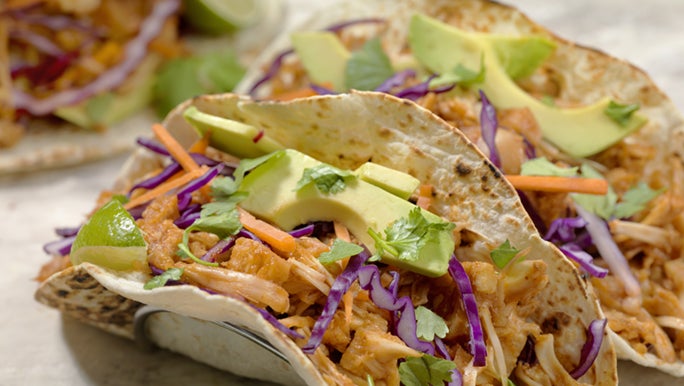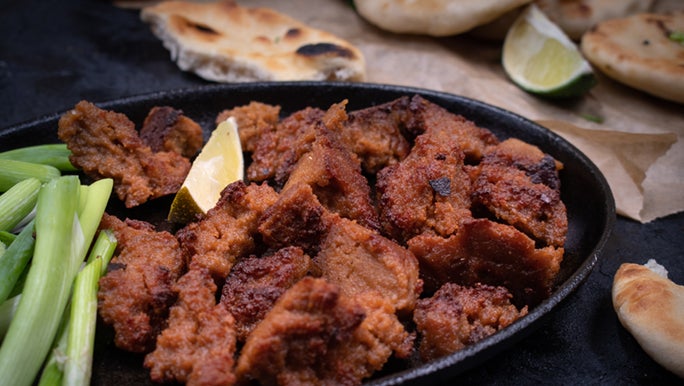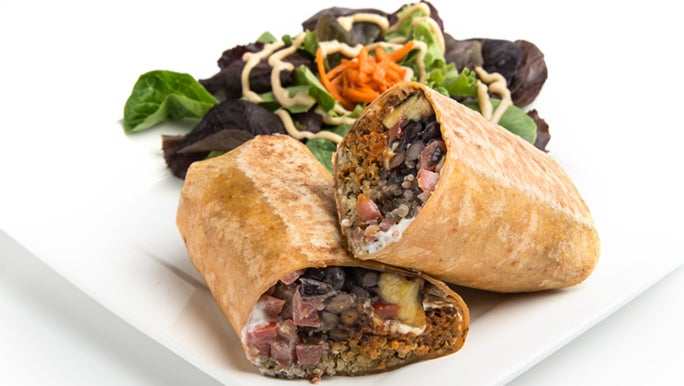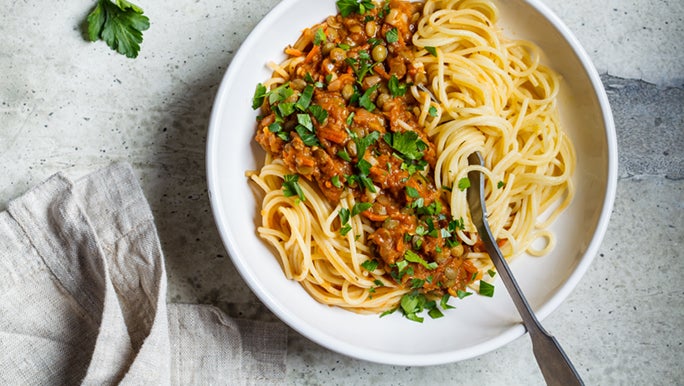5 vegan meat alternatives that actually taste good

Newly vegan but still missing that ‘meat fix’? Or maybe you’re looking for alternatives to reduce your meat consumption?
Plant-based product sales have soared over the last few years, with reports showing that sales of vegan meat substitutes have increased by 46% in 2020.
With all these choices, we’ve got the lowdown on five vegan meat substitutes to tantalise your tastebuds.
And the best bit? They’re usually available at your local supermarket, so you could easily try them and discover your new favourite vegan meat alternative.
Jackfruit
Don’t be fooled by its name. Jackfruit may be classed as a fruit. But when it’s harvested early, the flavour is neutral and the texture has been likened to barbecue meat.
Try pairing it with spices, such as smoked paprika and cumin. Or find a vegan friendly barbecue sauce and let the fibres soak up the flavours to have your own “pulled pork” style sandwich.
Jackfruit in Australia may be found canned in the supermarket, or even at your local fruit and vegetable market.

Jackfruit in Australia may be found canned in the supermarket, or even at your local fruit and vegetable market.
Seitan
You may be wondering “what is seitan?” as the name, pronounced SAY-tan, is a more recent label. This plant-based ‘meat’ comes from either whole wheat flour or vital wheat gluten and is a popular choice due to its texture resembling meat.
It’s versatile, with products ranging from ground ‘mince’ to strips, but it’s also pure gluten. So, seitan is not suitable for someone diagnosed with coeliac disease or who has a known adverse reaction to the gluten proteins in wheat – double check before you serve up a pot of seitan curry to your friends.

Seitan comes from either whole wheat flour or vital wheat gluten.
Soy chorizo
If you like a bit of spice in your sausage, you may find soy chorizo ticks all the boxes. Keeping the traditional spices from the Mexican version, this vegan meat substitute (AKA soyrizo) is made using soy protein. It’s easy to make at home as well as being available as a ready-to-buy product.
So, chuck on the slow cooker to make your own soy chorizo chili or buy a pack of pre-made sausages for your next barbecue.
And just so you know, soy protein is also one of the best vegan milk alternatives as it's a complete protein.

Soy chorizo is easy to make at home as well as being available as a ready-to-buy product.
Coconut bacon
Want to bring home the vegan bacon? Simply combine unsweetened coconut flakes with the right mixture of salts and spices. This meat alternative may be baked in the oven or dehydrated to give it that crunchy, chewy texture.
Instead of an overpowering coconut flavour, the sweetish flavour tends to be subtle – almost hinting at a maple bacon taste. If you make it yourself, you could experiment with different spices, and even liquid smoke, to get it just right to satisfy your bacon cravings.

High in protein and fibre, lentils make a great budget option.
Lentils
An oldie but a goodie. With all the vegan protein substitutes for meat appearing on shelves and in the fridges at the supermarkets, lentils may be easily overlooked.
High in protein and fibre, lentils make a great budget option. Texture wise, lentils make a great plant-based beef mince replacement. But they’re just as good in a soup, salad or a casserole for a variety of high protein vegan meals. Add in whatever vegetables are in season now and you will hit lots of nutritional goals.
Lots of choice and taste
There are so many tasty vegan meat substitutes available on the market now. That said, for some people, changing to a vegan diet may present certain food-related challenges.
Understanding vegan nutrition, knowing the difference between a plant-based diet and vegan one and even asking questions like “is chicken salt vegan?” may help you with your vegan journey.
Related:
Reviewed by the healthylife Advisory Board November 2021.